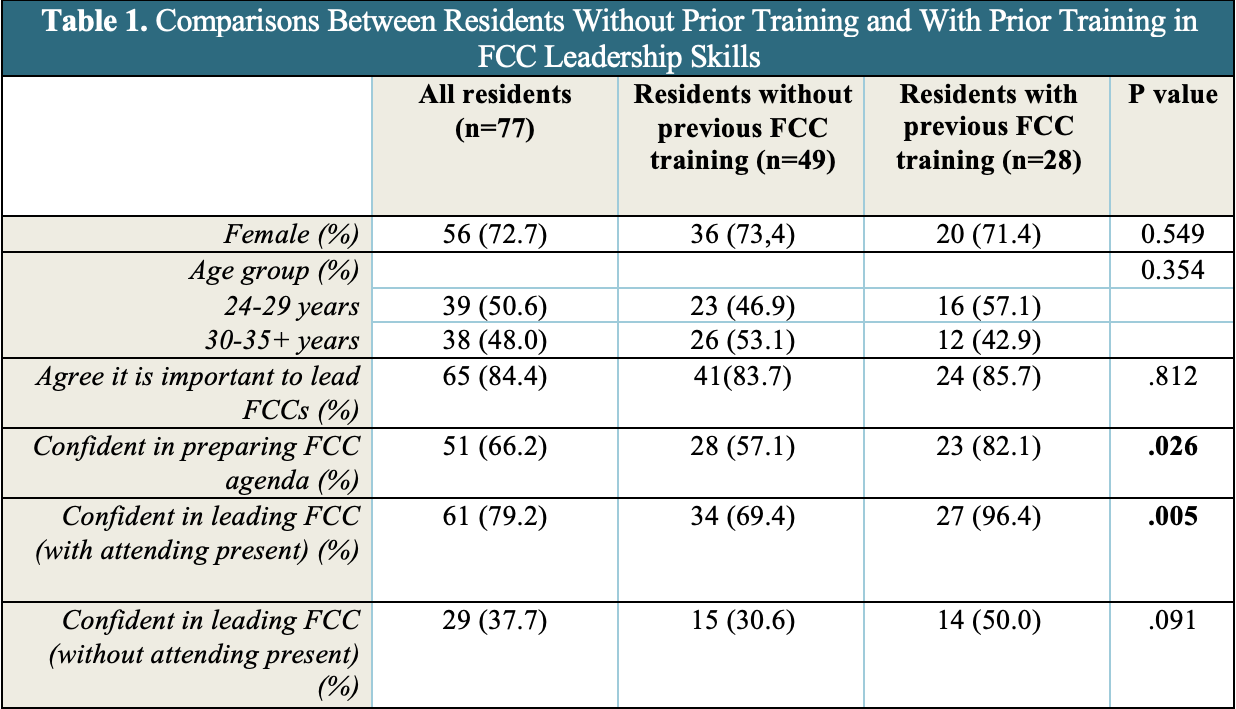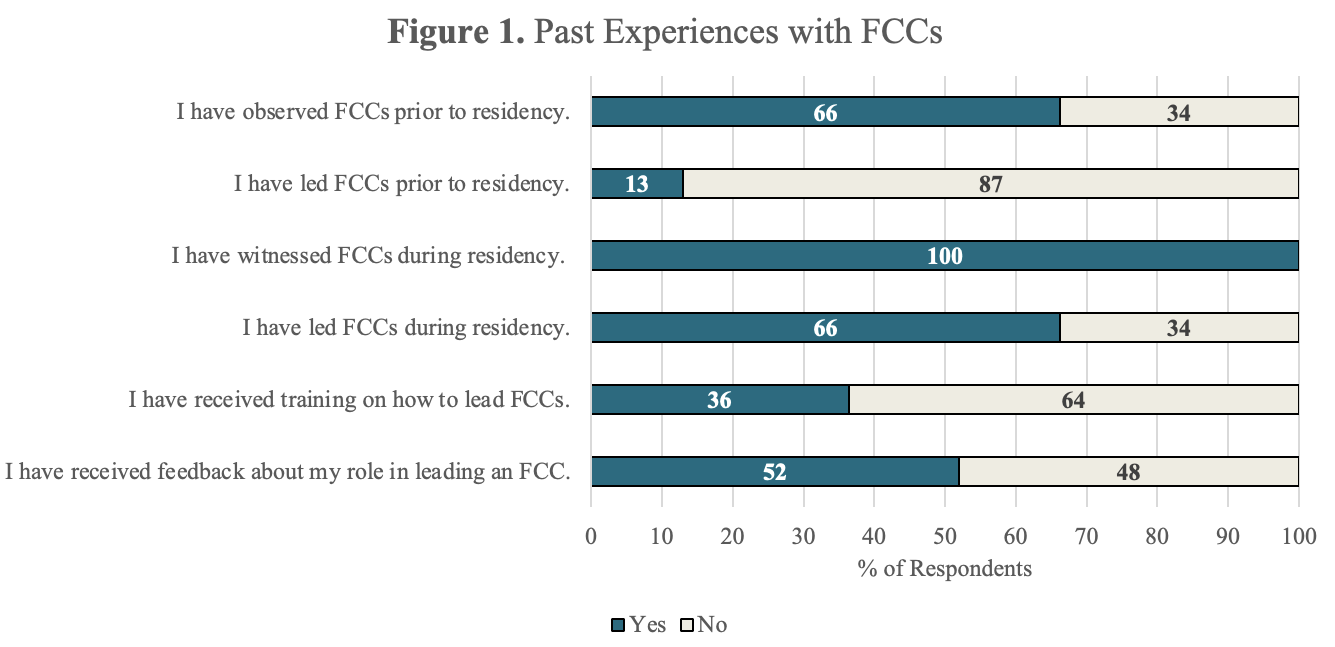Medical Education
Session: Medical Education 10
527 - Unleashing Potential: Understanding Pediatrics Residents’ Confidence in Leading Family Care Conferences
Monday, May 6, 2024
9:30 AM - 11:30 AM ET
Poster Number: 527
Publication Number: 527.3052
Publication Number: 527.3052

Lakshmee Malladi, MD (she/her/hers)
Resident
Lucile Packard Children's Hospital Stanford
Palo Alto, California, United States
Presenting Author(s)
Background: Family care conferences (FCCs) provide an opportunity outside of rounds to discuss new diagnoses, treatment options, goals of care, and discharge planning within a multidisciplinary team setting. While past research has focused on trainee comfort and preparation for goals of care discussions in the ICU, there is a scarcity of research evaluating pediatrics trainee confidence in leading FCCs in non-ICU settings.
Objective: 1. To assess how confident residents feel to lead inpatient non-ICU FCCs.
2. To evaluate the need for specific training to strengthen FCC leadership skills.
Design/Methods: An IRB-approved needs assessment was conducted at Lucile Packard Children’s Hospital at Stanford in June-August 2023. Survey questions were developed through the lens of the Zone of Proximal Development theory and sent to 112 pediatrics residents. For data analysis, we used frequency counts/proportions for descriptive analyses and Pearson Chi-Square to test group differences.
Results: There were 77 survey respondents (69% response rate). Of the respondents, 73% were female and almost all were < 35 years old. All respondent residents reported observing FCCs during residency; a majority agreed that they had been given the opportunity to lead FCCs (n=53, 69%). Only 28 (36%) participants reported having received formal FCC leadership skills training (see Figure 1). Without or with previous training, residents agree that it is important to be able to lead FCC (83.7% and 85.7%, respectively). In comparison to residents without previous training, a larger proportion of those with previous training indicated confidence in FCC agenda preparation (p = 0.026) and FCC leadership skills (with attending present) (p=.005) (see Table 1).
Conclusion(s): While most residents at this academic center agree that leading inpatient non-ICU FCCs is very important, many residents have not received formal training in this advanced communication skill. Having prior training is associated with confidence in preparing for and leading FCCs. While FCC leadership during residency often occurs with attending supervision, there is an inherent anticipation that residents will independently lead FCCs after training. However, the proportion of residents reporting confidence in leading FCCs approximately halved if a supervising attending is not present. These data demonstrate a compelling need for stronger resident training in the direction of inpatient non-ICU FCCs.


